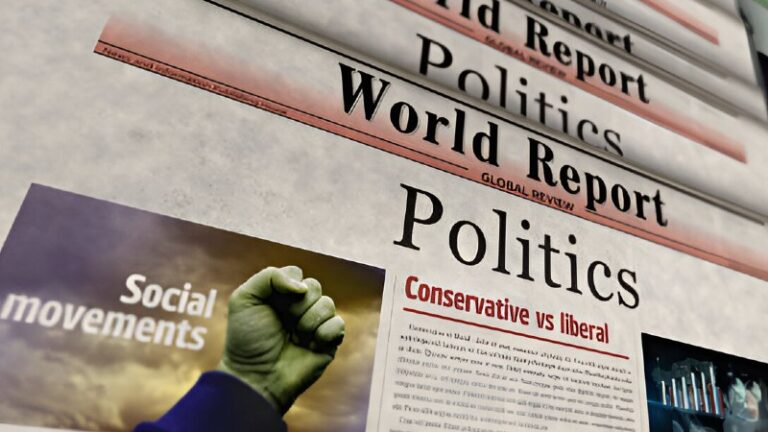The past week in global politics has been marked by high-stakes maneuvers, shifting voter sentiments, and growing public scrutiny of leadership across multiple nations. From the United Kingdom to the United States, and extending to global flashpoints, political actors are navigating crises, elections, and policy challenges that will shape public trust and governance in the months ahead.
United Kingdom- Labour, Reform UK, and Immigration Pressures
In the UK, the political spotlight continues to shine on immigration and the dynamics within Labour and Reform UK. Prime Minister Sir Keir Starmer is entering the second year of his government facing a complex mix of internal discipline challenges, public expectations, and policy implementation hurdles.
Labour Party Challenges
Starmer’s administration is grappling with internal tensions, highlighted by recent suspensions of MPs and the ongoing debate over party authority. According to recent reports, Labour membership has declined by approximately 200,000 over five years, though it remains the largest party in the UK with 333,235 members.
- MP Suspensions: Diane Abbott’s second suspension signals attempts at consolidating leadership control.
- Voter Sentiment: Early assessments show mixed reactions from voters, indicating a potential erosion of political honeymoon effects.
- Policy Pressures: Immigration and asylum system management are key stress points.
Immigration and Reform UK’s Hardline Approach
Reform UK leader Nigel Farage has proposed a controversial plan for mass deportations, suggesting withdrawal from the European Convention on Human Rights (ECHR) to enable rapid removal of asylum seekers arriving via small boats. While the government has introduced measures such as the one-in, one-out deal with France, asylum applications have reached a record 111,000 in the past year, highlighting the scale of the challenge.
| Metric | Current Figure | Change Over Last Year |
|---|---|---|
| Asylum Applications | 111,000 | +15% |
| Local Authorities Housing Asylum Seekers | 131 | +10 |
| Projected Savings from Child Benefit Crackdown | £350 million over 5 years | New Initiative |
This tension over immigration and enforcement measures is influencing political narratives in both Labour-led and Conservative-leaning constituencies, making immigration a flashpoint for upcoming local and national elections.
United States- Trump’s Policy Moves, Voter Sentiment, and Electoral Dynamics
Across the Atlantic, former President Donald Trump is consolidating influence in key battlegrounds while continuing to face scrutiny from the judiciary and federal institutions. This week, reports from Arizona highlight the tangible impact of Trump’s “Big Beautiful Bill” on local economies and voter sentiment.
Economic Impacts and Small Business Perspectives
In Tucson, Arizona, restaurant owner Ray Flores reported that temporary elimination of taxes on tips and overtime has facilitated stronger hiring outcomes. His new restaurant, Charro Steak North, saw a surge in qualified applicants, which Flores attributes in part to GOP policy incentives.
- Immediate effect: Better recruitment for front-of-house staff
- Concerns: Back-of-house staff like cooks and dishwashers see little benefit
- Broader challenge: Variations in state-level tipped wage laws complicate small business operations
Political and Electoral Implications
Arizona’s 6th Congressional District, a critical battleground, demonstrates how policy can influence voter decisions:
- Independent voters, like Flores, appreciate immediate economic relief but remain cautious about long-term implications.
- Latino voter influence is growing: Trump increased his share of Latino voters in Arizona from 37% in 2020 to 44% in 2024.
- Social safety net reforms Medicaid, SNAP, and food assistance changes—are phased in post-midterm, strategically delaying political backlash.
The Community Food Bank of Southern Arizona projects a rise from 171,000 people served in 2024 to nearly 200,000 in 2025, reflecting the tangible social consequences of federal policy changes.
Judicial Battles and Federal Oversight
- Trump’s former personal lawyer Alina Habba was ruled to be unlawfully serving as acting U.S. Attorney in New Jersey.
- Threats against federal judges have surged since Trump assumed office, highlighting risks associated with judicial enforcement of politically charged cases.
- DOJ actions in D.C. have federalized law enforcement, resulting in 465 arrests with exemptions for rifles, demonstrating selective application of federal power.
Global Flashpoints- Middle East and Latin America
Geopolitical tensions remain a defining factor this week, with flashpoints that could reshape regional stability and international relations.
Israel and Gaza
Israel has escalated military operations in Gaza, pushing into city outskirts and approving settlement plans in the West Bank. This has caused a humanitarian crisis, with approximately one million Palestinians at risk of displacement and severe food shortages. The international community continues to criticize these actions, highlighting the tension between military strategy and humanitarian obligations.
U.S.-Venezuela Relations
Relations between the U.S. and Venezuela have grown increasingly tense. President Nicolás Maduro remains in conflict with U.S. forces, leading to heightened military alert and signaling potential diplomatic escalations in the Western Hemisphere.
Redistricting and Electoral Strategy
Both the U.S. and UK political landscapes reveal how redistricting and constituency reshaping influence power balance:
| Country | Redistricting Action | Impact |
|---|---|---|
| United States | Texas GOP congressional maps approved | Aimed to flip Democratic-held seats, boosting Republican midterm chances |
| United Kingdom | Labour party internal restructuring | MP suspensions and party discipline highlight consolidation of leadership control |
Redistricting, coupled with targeted policy measures, shapes voter access, turnout, and electoral outcomes in both nations, influencing strategy for 2026 midterms in the U.S. and local elections in the UK.
Social and Cultural Dimensions
Beyond economics and policy, social and cultural factors are increasingly influencing politics:
- Generational and gender divides: Young women in the UK are trending more left-wing, reshaping party priorities.
- Media strategies: California Governor Newsom mirrors Trump-style digital engagement, blending policy messaging with performative politics.
- Public discourse: Protests in Los Angeles highlight ongoing debates around constitutional protections, judicial independence, and social equity.
Policy Timing and Voter Psychology
A distinctive insight emerging from this week is how governments leverage timing of policy implementation to manage political risk. In Arizona, for instance, immediate tax relief benefits voters, while larger social safety net cuts are deferred to post-midterm elections. This approach:
- Buffers political fallout ahead of elections
- Maintains momentum for party messaging
- Allows governments to frame narratives around economic relief while controlling long-term impacts
Similarly, the UK’s Labour party uses MP suspensions to reinforce leadership authority, demonstrating how procedural timing can influence public perception and internal cohesion.
Conclusion
This week underscores the intersection of policy, electoral strategy, and global events in shaping political landscapes. From UK immigration debates to U.S. economic experiments, redistricting battles, and international flashpoints, leaders are navigating complex pressures that affect both immediate outcomes and long-term governance.
Key takeaways:
- Policy timing is a powerful tool to influence voter perception and mitigate backlash.
- Immigration and asylum issues remain politically volatile in the UK, shaping party credibility.
- Trump’s policy and electoral strategies continue to reshape the U.S. political map, particularly in battleground states like Arizona.
- Global crises, including Israel-Gaza tensions and U.S.-Venezuela relations, underscore the importance of international stability in domestic political calculations.
By analyzing these developments collectively, it becomes clear that political strategy, economic policy, and social influence are deeply intertwined, demanding attention from policymakers, analysts, and engaged citizens alike.
Frequently Asked Questions (FAQs)
What were the biggest political developments this week?
The most notable events included UK debates on immigration and Labour Party discipline, U.S. policy shifts under Donald Trump, escalating Israel-Gaza tensions, and redistricting strategies in Texas.
How is immigration shaping UK politics right now?
Immigration remains a flashpoint in British politics. With asylum applications hitting 111,000 in the past year, Labour faces pressure to balance humanitarian policies with public concern, while Reform UK pushes for mass deportations and withdrawal from the ECHR.
What impact are Trump’s economic policies having?
Policies such as temporary elimination of taxes on tips and overtime have boosted hiring for some U.S. small businesses, especially in battleground states like Arizona. However, deferred cuts to Medicaid and SNAP are raising concerns about long-term social impacts.
Why are international flashpoints relevant to domestic politics?
Conflicts such as Israel’s Gaza offensive and U.S.-Venezuela tensions influence global stability, energy prices, and security strategies, all of which feed back into domestic voter sentiment and policy debates.
What is the fresh perspective highlighted in this week’s analysis?
A key insight is the strategic timing of policies. Leaders are implementing immediate voter-friendly measures while deferring politically sensitive cuts or actions until after elections, shaping public perception and minimizing backlash.


